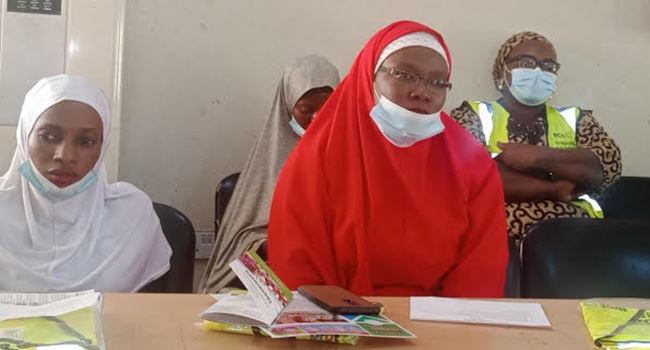News
Physically challenged lament stigmatization, humiliation from parents, relatives

Physically challenged people in Bauchi state have lamented that the stigmatization and maltreatment they encounter in their homes often lead them to begging for alms and eventually, they are sexually abused.
The representative of a Non-Governmental Organization, Heal Initiative Development, Aisha Adamu, stated this in a goodwill message during a one day programme to mark 16 days of activism organized by the Development Exchange Center, Bauchi.
She said: “Most of the challenges we often face first come from our parents and then the community. For example, when parents give birth to a disabled child, they begin maltreating them as if they are not humans. Their needs are not being catered for and they are treated with disdain.
“It is from there that we start facing this stigmatization in our hearts and low self esteem that since we are not being catered for even by our immediate family, then, we are not useful in the society. When a child faces such stigmatization from home, he’s not sent to school, his needs are not provided for and because he is humiliated and despised at home, they end up begging on the streets especially the female child.
“The moment she starts begging for alms, that’s when miscreants will take advantage and abuse her sexually, emotionally and sometimes even physically. This happens because they see you cheaply looking dirty without help and they take advantage of you.
“Even if they rape you and impregnate you, nobody will fight and get justice for you because you are a disabled person as if it was your making. So, we call on the government to also prosecute perpetrators of sexual and gender based violence to serve as deterrent to others,” she stated.
Also speaking, the Coordinator, National Human Rights Commission, Bauchi State office, Yachi Dala, lamented the rising cases of violence in the home pointing out that children end up being affected.
“We have rising cases of domestic violence. Most of the cases we have are spouse beating their spouse; apart from physical violence, there is also psychological, emotional and economic violence where a spouse is deprived of going out to work or intentionally depriving them of upkeep of the family. The children are most affected because of their vulnerability.
Read also: Police arraign two men for allegedly abducting, defiling 16-year-old physically challenged girl
“When there is an issue between a father and a mother, the children may not be directly involved but it will always affect the children. Denial of access to children is also another form of violence.
“We have found out that people don’t come out to report cases of violence because of shame in the family, the family doesn’t want the society to know that one of their own has been sexually violated. So, there’s pressure from the family not to speak out but even when these cases are reported, it’s the same family that would go and withdraw those cases.
“There is also the fear of reprisal from the perpetrators. The perpetrators may have threatened the family or the victim. We also have cases where when the victim identifies the perpetrator, he would then run and lodge a complaint of defamation of character.
“Lack of accountability is also another issue. Perpetrators are not held accountable, so that discourages others from coming to report because they feel when they come out to report, they won’t get justice,” she said.
Dala called on the government to be proactive saying, “it’s a call to action and it’s not just the government but every stakeholder. For the government, where there are laws, they should implement them and they should have the political will to ensure that those laws are implemented and hold perpetrators accountable.
The Head of Programmes, DEC, Samuel Yalmisun, said the programme was organized to create awareness on the dangers of gender based violence which mostly affect women and girls.
Join the conversation
Support Ripples Nigeria, hold up solutions journalism
Balanced, fearless journalism driven by data comes at huge financial costs.
As a media platform, we hold leadership accountable and will not trade the right to press freedom and free speech for a piece of cake.
If you like what we do, and are ready to uphold solutions journalism, kindly donate to the Ripples Nigeria cause.
Your support would help to ensure that citizens and institutions continue to have free access to credible and reliable information for societal development.
























